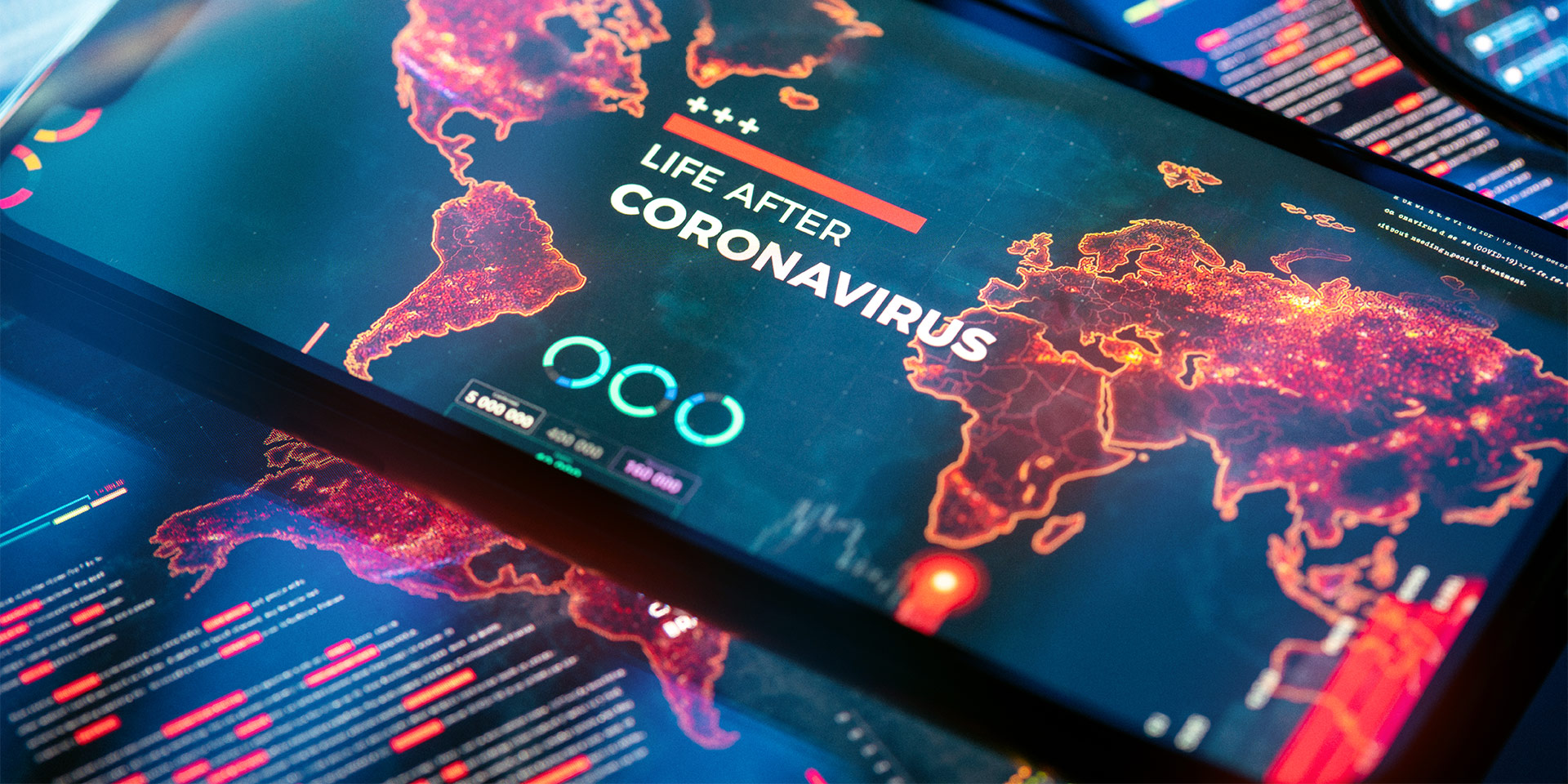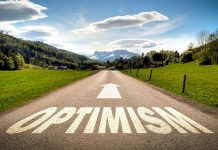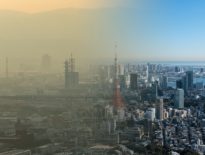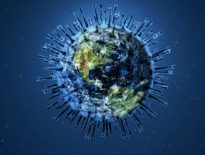Many certainties and convictions will be swept away. Many things that we thought were impossible are happening. The day after we have won, it will not be a return to the day before; we will be stronger morally.
When French President Emmanuel Macron spoke these words, he was describing only a fraction of what we are living through now. The post-pandemic world is a world we are already gauging, trying to understand what the “new normal” will look like.
As difficult as it may be to define “normality”, we intuitively understand that what we consider to be normal is associated with safety and things that are familiar to us, writes Brandon Ambrosino in an article for the BBC, recalling the role that the desire to return to normality played in the election of US President Warren Harding. In 1920, after World War I had disrupted American life, Harding made a simple promise that ended up carrying him to the presidency of the United States: “America does not need heroism now, but healing; not of a remedy, but of normality.” Harding was betting on the Americans’ desire to go back to their peaceful, pre-war lives, and this bet turned out to be a winning one.
Today, there aren’t many things that people desire more than returning to normality. We have often had to use the phrase “new normal” to appropriately sum up our current situation, says CNN analyst Juliette Kayyem, who emphasises that normality will change its face day by day, depending on what happens with COVID-19.
It is a normality in which we will find that, beyond the political and economic changes, or medical research and practice, we ourselves have been profoundly changed.
Personal changes
The need to adapt
In response to the current crisis, we will undergo numerous changes “in how we think, behave, and relate to one another—some deliberate, but many made unconsciously, some temporary, but others potentially permanent”, writes journalist Max Fischer in an article published in The New York Times. This kind of change is aptly described in the story of Velibor Bozovic, a photography professor in Montreal, who recalls the siege of Sarajevo in the 1990s:
“It was the first winter that you realised that this is going to last, this is your life. And somehow you live. Just like people are adapting to the situation now”, says Bozovic.
The human capacity to adapt is actually incredible, argues Bozovic: “No matter how bad it is, you adapt. You live your life as best you can.”
In times of radical, long-term changes, people change too, says psychologist Luka Lucic, who works at the Pratt Institute and studies the effects of war. For instance, some of the Sarajevo survivors have acquired an amazing ability to avoid bullets and bombs, according to Lucic’s studies. Professor Bozovic also says that he often bypasses a street near his home that was targeted by snipers during the war—well after the war had ended. “That lingers, that stays. And I’m sure it’s going to be the same now”, says Bozovic.
During the four-year siege, everything changed: the sense of community, memories, even the passage of time. Professor Bozovic, like many other survivors, cannot help but draw a parallel between the crisis then and the one we face today.
People who live in regions which have been affected by SARS and MERS tend to wear masks even in the event of a common cold. There is a significant difference, for instance, between Western societies and Hong Kong, where many died during the 2003 outbreak of SARS. Memories of that time are still alive, and wearing a mask is a behaviour that no one thinks of as “overkill”, wrote Tessa Wong in a BBC article.
Anxiety, depression, anger: dangerous alternatives to self-control and compassion
A number of studies that have looked at the population’s psycho-social response to SARS, Ebola and swine flu epidemics have shown that anxiety, depression, anger, guilt, pain, post-traumatic stress or stigma are among the most common reactions to a crisis.
“There’s never been a time in modern human history when every person is seriously worried about the same thing at the same time,” said David Ropeik, a consultant on risk management and former instructor in risk communication at the Harvard School of Public Health.
“A risk we choose seems less dangerous than a risk that is imposed on us,” Mr. Ropeik observed, and illustrated his statement with the example of those who, after the terrorist attacks of September 11, 2001, preferred to drive thousands of kilometres rather than to use a plane, even though the risk of an accident while driving is much higher.
“For the time being, we are still ‘riding the tide’, going with the crisis, we do not look back or sideways, only forward, towards survival. But in a few months, let us say six – just an informed guess – we will feel the post-traumatic wave”, says psychiatrist Vlad Stroescu.
It all has to do with imprinting traumas in memory, “deeply and indelibly in our memory,” which then resurface as repeated experiences, which slows the return to normalcy, Dr. Stroescu said.
“Increased social isolation, loneliness, health anxiety, stress and an economic downturn have made a perfect storm to harm mental health and well-being,” professor Rory O’Connor said, one of the 24 mental health experts who published a study on the profound impact the pandemic has had on general mental health.
According to their research, children, young people, the elderly, those with health problems, people with mental illnesses, front-line health workers, people with low incomes, those with learning difficulties, as well as detainees, refugees and the homeless are categories of people who will feel the effects of the pandemic in a way different way to the rest of us.
It is also interesting that these studies noted particular response behaviours triggered by the epidemic which focused on regaining a sense of autonomy and control, as well as a tendency to seek social support.
Dipali Mukhopadhyay, a political scientist at Columbia University who studies how society copes during a conflict, says he has found that in Daraya, a suburb of Damascus, there are more networks of help and support than you can find in any society that enjoys peace. During the pandemic, behaviours similar to those in Syria formed in New York and other affected cities, where people have built local support groups, Mukhopadhyay points out, noting that “all the different ways that people create solidarity in a crisis get activated”.
Changes to daily life
Daily life might significantly change, although we still do not know much about what will become permanent and what will disappear, just as we still do not know how much time we will need to become accustomed to the presence of COVID-19.
Technology
The digital world has flourished during the months when the physical world has been hampered. This led entrepreneur Andrew Keen, who is also the author of several books, to opine that our survival in this pandemic is owed to technology. Prior to the pandemic, many people were cynical when it came to technology, but in the future, it will become ubiquitous, Keen believes. Governments will also use technology to better control outbreaks, despite the inherent risks of undermining individual freedom and privacy—but this is only a reconfiguration and acceleration of a process that has been happening for many years, Keen says.
Journalist Zoe Kleinman notes that we have progressively relaxed our screen time standards (even for children), and she appreciates that this habit is unlikely to disappear overnight. Also, though our infrastructure has proven able to cope adequately with the high vehicle traffic from people travelling to work, video conferencing could replace regular meetings, and the line between work and home time will become thinner than ever.
A new way to work
“Millions of people will get the chance to experience days without long commutes, or the harsh inflexibility of not being able to stay close to home when a family member is sick. This might be a chance for a great reset in terms of how we work”, believes Chief Executive of WordPress, Matt Mullenweg.
We can expect that within two years from now up to 30 percent of workers could be working from home multiple days per week, according to consulting firm Global Workplace Analytics.
A different kind of school
After France reopened schools on May 12, a snapshot taken by Lionel Top, a BFMTV journalist, quickly went viral. The image showed how the children from a school in Tourcoing were playing alone, each inside a square drawn with chalk on the asphalt. “I cannot get over this. This image is heartbreaking. We can’t call this ‘a school’”, a teacher commented on Twitter. Authorities were still forced to close several schools and kindergartens a week later, when 70 cases of coronavirus were discovered among students and preschoolers across the country.
In Denmark, the first country in Europe to reopen schools, children have been told to wash their hands for at least one minute every two hours and keep two meters’ distance from other children.
“The kids are not allowed to touch each other, to play together, to embrace each other, to do high fives, things like that. There’s only one child per table, because normally you have two kids sitting at one, two-person table,” says Merlin Schaeffer, professor at the University of Copenhagen.
Cambridge University has announced that it has decided to conduct online courses and exams by the summer of 2021, noting that the decisions could change, depending on the evolution of health institutions’ recommendations.
Shopping
Covid-19 will significantly change consumers’ behaviour, according to a report by Big Bed Rooster.
Thus, contactless payment methods will be preferred, and social distancing will lead consumers to avoid confined spaces and to prefer open-air shopping to closed ones. Also, as the report states, there will be a growing interest in local products, people will prefer to shop online, and will be more careful about their spending patterns.
Global retail sales plunged 8.7% in March, the biggest decline since 1992, and people’s reluctance to spend money on non-essential products is likely to continue, the report said.
In the end, consumers will choose companies that are sensitive to the crisis, that take care of customers’ health and safety and make them feel that they are making the right decisions when buying their products. The supply chain must be shortened, and we must “produce our own food on our own farms” states European Agriculture Commissioner Janusz Wojciechowski, who says that this is the main lesson the crisis has taught Europe.
Healthier food
The restaurant industry has already suffered significant financial losses, and the new security measures will translate into less economic efficiency, according to journalists from Politico.
On the other hand, being stuck in their homes has forced people to begin cooking their own meals, baking their own bread, and to monitor their consumption. Nearly 40% of Britons say they cook more often than they did before the crisis, and 33% say they throw away less food, according to a You Gov poll in April.
Travel: rarer and more expensive, holidays becoming atypical
If holidays become a whole new experience (with pool loungers separated by plastic panels, for example), travelling, too, may soon be different from what it used to be.
Airports have already introduced social distancing measures for passengers. In the US, the Transportation Security Administration says passengers must wash their hands for at least 20 seconds, both before and after passing security checkpoints. Dubai Airport offers quick tests for COVID-19. Hong Kong International Airport has tested a device that can disinfect the whole body in 40 seconds, but also robots that destroy microbes with ultraviolet light, writes the BBC.
“There will be new social distancing guidelines. It’s possible we’ll see the introduction of an immunity passport”, says James Thornton, chief executive of Intrepid travel group.
Thermal detection screening which has been designed to measure passengers’ temperatures will be common inside airports (but also in train stations) and in the shorter term there will be fewer flights, which probably means that prices will increase, writes journalist Tom Burridge.
European destinations are looking for ways to safely accommodate tourists in hotels, with solutions such as only permitting every other room within a building to be occupied, says Ulf Sonntag of the Northern Europe Tourism Research Institute.
Finally, by analysing the risks and costs, people may decide to do less travelling abroad. And, “what used to be called a ‘staycation’ will change, and could become the norm”, says Andy Rutherford, founder of UK-based tour operator Fresh Eyes who states that future travels must be based on mutual respect, solidarity, and responsibility.
What macro-changes should we expect?
Democracy breaking down
“At a time when faith in democracy is at its lowest point in decades, deteriorating economic conditions will have far-reaching implications for political and social stability”, said Ian Goldin, a professor of globalisation and development at Oxford University and Robert Muggah, co-founder of the Igarape Institute in a joint article.
Many citizens do not trust their leaders anymore. The contradictory messages sent by these leaders since the outbreak of the pandemic have strengthened this distrust of public authorities, and even extended it to experts, making it difficult to manage the crisis, and undermining the global response to the pandemic, Goldin and Muggah have pointed out.
“A world less open, less prosperous, and less free” – this is the world we are headed towards, believes Stephen M. Walt, professor of international relations at Harvard University.
Walt believes that this worrying path (reinforcing nationalism and reintroducing a conflictual nature to world politics) is being foreshadowed at the intersection of a deadly virus, inadequate crisis planning, and leaders’ incompetence.
Not only have authoritarian states multiplied their instruments of population surveillance and control, but democratic ones have also done this: from traffic restrictions to the use of citizen-monitoring applications, states have pressed beyond their limits of oversight, and in the long run, may not be able to return to their prior limits, a PressOne journalists write.
Increased separation within society
Journalist Anna Sauerbrey has analysed the case of Germany. In the beginning there was a consensus, articulated by Chancellor Angela Merkel in an address to the nation on March 18, that German citizens should together act in solidarity during the country’s biggest crisis since World War II. And it was indeed a moment of solidarity, which united political rivals, and the population, helping them to understand the risks and responsibilities the pandemic would present.
Two months later however, thousands of protesters, “a savage mix of extremists, conspiracy theorists and ordinary citizens, largely supported by the populist far right, the Alternative for Germany party,” took to the streets, demanding their rights and claiming various conspiracy theories. The protesters are a minority in a country where the population has generally supported restrictions, writes Sauerbrey, but it shows how quickly conflict arises and ruptures moments of calm. Quarrels and divisions seem to be Germany’s new normal, Sauerbrey writes. One can tell from looking around that it may not be the new normal for Germany alone.
The crisis, and the reset of the EU
Even if the European Union goes through a real crisis—and some even argue that it could fall apart due to the lack of solidarity between the continent’s north and south—this will not happen, says Zoran Arbutina, a journalist at Deutsche Welle. Arbutina has examined the recent crises through which the EU has gone, as well as the reasons why member states still prefer to be a part of the union.
However, the crisis has revealed the EU’s weakness, says Nicole Gnesotto, the vice-president of the Jacques Delors Institute think-tank: “The EU’s lack of preparation, its powerlessness, and its timidity are staggering. Of course, general healthcare is not part of its remit, but it is not without means or responsibility”. The Union’s first measures, from closing borders to blocking exports of medical equipment, notes Gnosetto, show that each member state has acted on its own, and for its own good, leaving affected countries such as Italy to fend for themselves.
The crisis has convinced many that the EU is not working well in its current configuration, writes Politico journalist Jillian Deutsch, suggesting that increasing the union’s power in emergency situations could be the key to managing future crises.
In fact, more than 6,000 people (including former prime ministers and a president of the European Parliament) have signed a petition calling for the EU to take on powers in the field of healthcare. If there had been a health authority at the level of the whole EU block, “Europe would likely have had far fewer fatalities”, says Joan Costa-Font, an associate professor at the London School of Economics.
However, a significant increase in the European Union’s power could mean the reopening of the EU treaties, “an idea that even the most devoted Europhile fears”, though it could prove to be an essential measure, Deutsch concludes.
The new status quo for international relations
“The pandemic itself is proof of our interdependence. But in all polities, there is already a turning inward, a search for autonomy and control of one’s own fate. We are headed for a poorer, meaner, and smaller world”, said Shivshankar Menon, one of India’s former national security advisors.
The increased opposition to immigration, the low commitment to solving global problems such as climate change, some states’ difficulty to recover from the crisis generated by COVID-19, the deterioration of Sino-American relations and the weakening of the cohesion of European states, are some of the main problems we may face in the coming years, believes Richard Haas, chairman of the Foreign Affairs Council.
“The crisis also represents a stark test of the competing claims of liberal and illiberal states to better manage extreme social distress”, according to the think-tank Group Crisis.
At the beginning of the pandemic, authoritarian states seemed to have better control over the crisis, apparently emerging victorious from the unprecedented battle all states now face. The secret of such Asian countries, according to the South Korean philosopher Byung-Chul Han, lies within the Asian mentality, which comes from their cultural tradition. “People are less rebellious and more obedient than Europeans. They have more confidence in the state. Daily life is much more organised”, and strict surveillance of citizens does not provoke opposition and resistance, Han writes in El Pais. Therefore the philosopher believes that not only will the Chinese regime rise unweakened from this crisis, but “China will be able to sell its digital police model as a successful example of pandemic management.”
The myth that autocracies actually manage a crisis better has disintegrated, but only the future can reveal whether this will strengthen people’s confidence in the idea of democracy. A report released by the Chinese Ministry of State Security to President Xi Jinping, recently leaked in the press, shows that Beijing is aware of the high level of international hostility generated by their management of the COVID-19 crisis. The report says that anti-Chinese sentiment is at its highest since the 1989 Tiananmen Square massacre, and could even lead to a direct military conflict with the United States.
On the other hand, both the US and China will try to take advantage of the effects of the pandemic and strengthen their position by partnering with countries around the world.
While global confidence in China will take a significant knock, the United States is at a disadvantage because of the way President Trump has handled strategic alliances and partnerships, writes Nick Bisley, a professor of international relations at La Trobe University.
Russia (which until recently has been referenced as an exemplary model of crisis management by pro-Kremlin propaganda) now has the second-highest number of SARS-CoV-2 infections in the world. However, Russian experts at the Alliance of Physicians believe that the real number of infections and deaths is much higher than reported, writes Ovidiu Nahoi, editor-in-chief of Radio France Internationale (RFI) Romania.
Meanwhile, doctors who are too vocal are arrested (or fall suspiciously from balconies), while Vladimir Putin’s public appearances are increasingly scant, so as not to be associated with the failure to manage the epidemic. In fact, the president’s popularity has reached an all-time low and some fear that the Kremlin regime will do everything in its power to regain major public support, as was seen with the annexation of Crimea, Nahoi concludes.
Surviving, but not at any cost
A pandemic the size of this one will have major consequences, says Suren Manukyan, head of the Department of Genocide Studies at Yerevan State University. After analysing events such as the plague of Justinian (a pandemic that affected the Byzantine Empire in 541-542), or “the Black Death”, which decimated Europe’s population in the fourteenth century, Manukyan concludes: sometimes pandemics “have had a larger impact on the development of humanity than world wars, diplomacy or significant geographical discoveries.”
There is also the thought (and the fear) that, on the contrary, political leaders’ energy will be invested in trying to restore normality as we knew it, before the pandemic is actually under control.
The truth is we still do not know if tomorrow’s world will be totally unrecognisable, or have most of the traits that are familiar to us. The most important lesson that today’s crisis has taught us seems to be about responsibility. We have learned, as individuals and as communities, how we can protect others, even from the dangers to which we consider ourselves entirely immune. The world of tomorrow cannot be as bad as the darkest scenarios portrayed by some, provided we learn, as a wise person has said, to survive without becoming beasts.
Carmen Lăiu is a writer for ST Network and Semnele timpului.



















